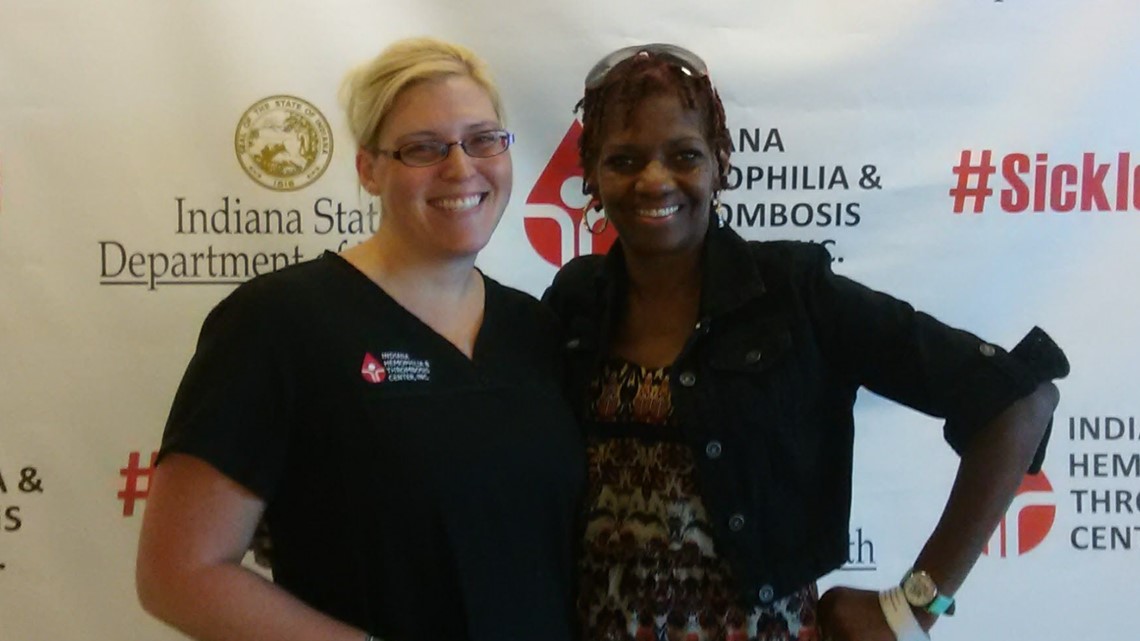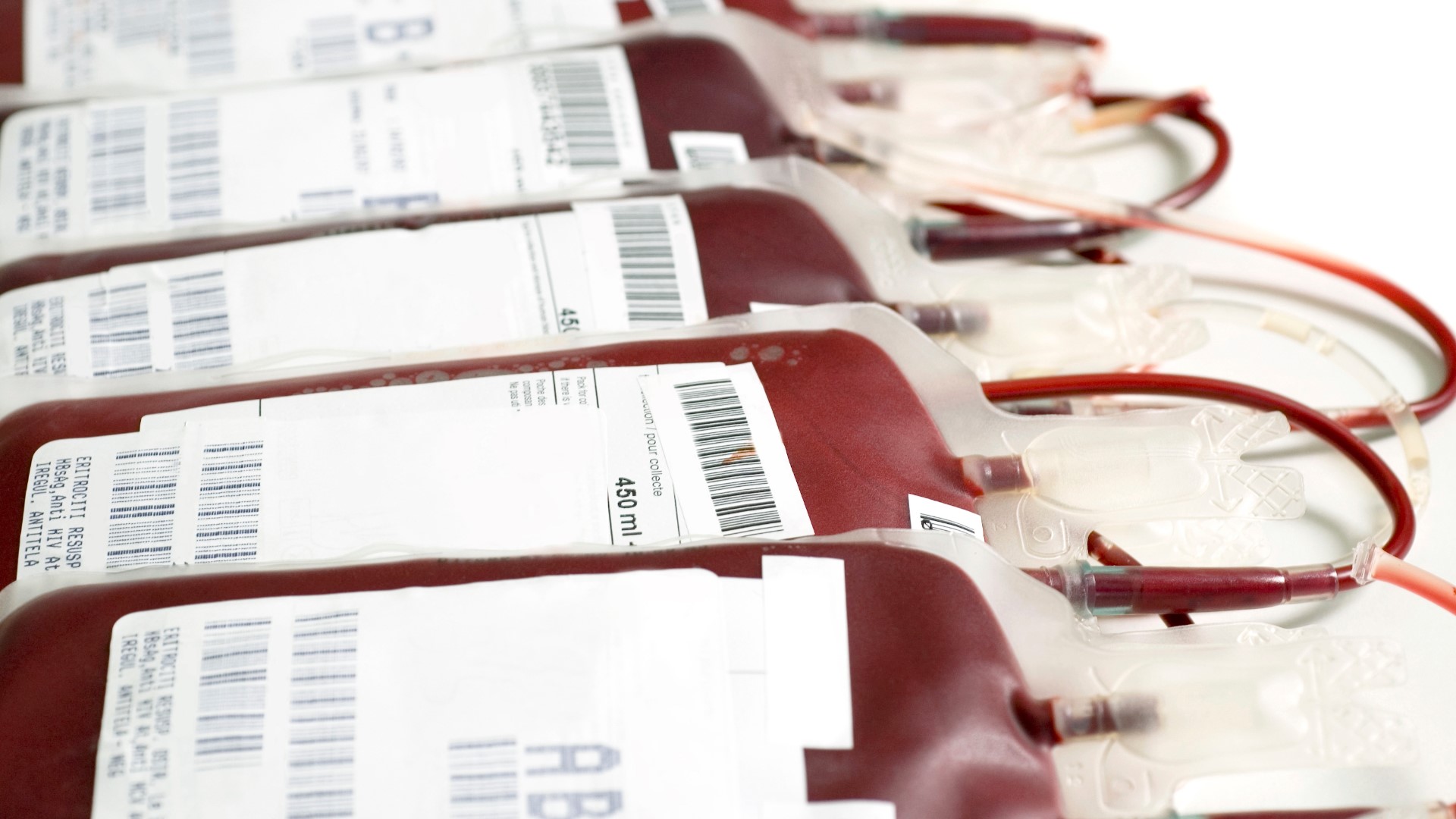INDIANAPOLIS — When Sharon Hatcher-Hutchison was two years old, she received a life-changing diagnosis.
“When they sent the results back in a few days he told my parents, ‘Yeah, it’s what I thought it was. It’s called sickle cell anemia,’” Hatcher-Hutchison said.
Sickle cell disease is a genetic blood disease that affects the shape of red blood cells, which carries oxygen to every part of the body. As a result, patients rely on frequent blood transfusions to help manage the disease and symptoms.
Without the transfusions, the pain can become unbearable.
“Take your worst pain and multiple that times 10 and that’s usually what the person with sickle cell is going through,’ Hatcher-Hutchison said.
Hatcher-Hutchison said a “sickle cell crisis” can happen at any time. Her last transfusion was two weeks ago and before that, it was only one week.
“I could leave here and get in my vehicle and on the way home, I could immediately go into a crisis without any warning,” she said. “My blood count could be so low that I need a transfusion as soon as I get to the hospital.”
Sadly, there is no guarantee the hospital would have the right blood. It's something Hatcher-Hutchison experienced recently after waiting days in the hospital to get blood from another state.
It’s because sickle cell patients rely on blood that comes from a similar ethnicity and has similar markers called antigens. If a patient receives blood from a donor who has different antigens, their body may see that blood as an invader and fight it off.


“There are times we’ve had to delay being able to transfuse patients because we don’t have the blood to match up for that patient,” said Kimber Blackwell, a physician assistant at Indiana Hemophilia and Thrombosis Center.
Blackwell said most patients with the disease are of African descent, but currently, less than one percent of donated blood comes from Black Hoosiers.
“It’s really important that we can increase the amount of African American blood donors, because those blood donors are more likely to be an exact match for our patients,” Blackwell said.
With blood banks already in crisis mode, sickle cell patients like Hatcher-Hutchison are on edge for what’s to come next.
“It makes me very nervous, especially when the demand is so high and the supply is so low,” she said.
It’s why she’s encouraging minorities to give blood, hoping it can help not just her but the 1,500 other Hoosiers living with the condition.
“This could be your friend or your next-door neighbor. This could even be your parent,” Hatcher-Hutchison said. “A day or two can make a difference between whether they live or whether they die.”
Currently, 1 in 10 African Americans carries the sickle cell trait. Blackwell says even if you have the trait, you can still donate blood.
Visit Versiti's website for more information on how to donate

